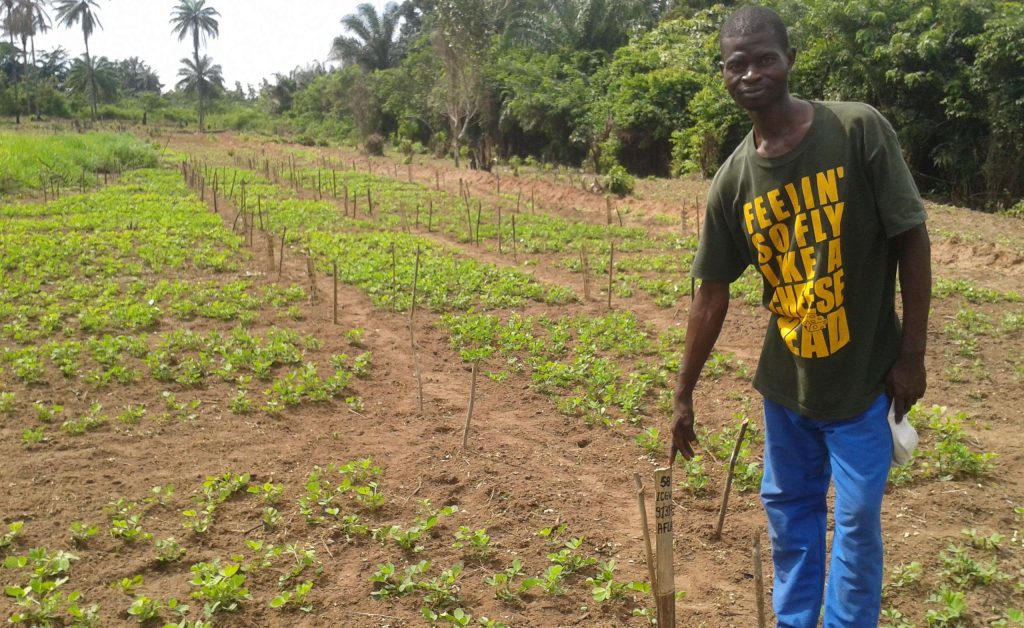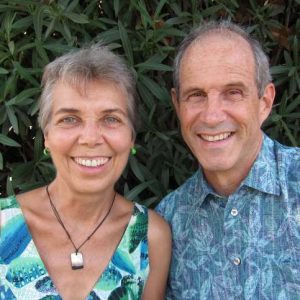
This week ACDI Lusekele / CBCo celebrated one year of renewal and reorganization, after nearly going belly-up in 2016. It has been an experiment in faith. A small cohort of believers in the Baptist Convention of Congo (CBCo) feels a burden to do something to reduce hunger and poverty. Innovations in agricultural practices, storage and marketing could double food availability and increase household income. But too few farmers know enough about them to take advantage. Lusekele supporters believe that God may once again be opening up an opportunity for ACDI Lusekele to step into the breach, promoting best agricultural practices among simple farmers and supplying high-quality seed and other key inputs. This has been a year to test out that call.
For example, in September ACDI Lusekele launched a campaign to promote a new peanut variety, (officially recognized by the national seed service as Lusekele-2 as a result of testing we did a decade ago.) Over 550 farm families tried the new variety side-by-side with their preferred local variety. Erratic rains and a peanut-stunting disease common in the region challenged even good farmers. In December farmers harvested their demonstration plots and compared results. On average local varieties produced only a 2-fold increase of peanuts, a belt-tightening harvest. In the same conditions, Lusekele-2, produced nearly 6 times the seed planted. For a third of cooperating families, Lusekele-2 produced more than 8 times the amount planted and the top-producing family achieved a 17-fold increase.
The beginnings of restored regional seed reserves of peanuts
Maybe you’re asking why more people don’t just switch to Lusekele-2 peanuts if the advantage is so striking. There are two main reasons. First, good news spreads slowly when there are few people who feel compelled to share it. No county extension agents and no seed company agents tout the advantages of superior varieties. There is no advertising on TV. No testimonials in farmers’ newsletters. Most farmers still don’t even know that truly remarkable new varieties exist. Second, reliable grain legume seed is incredibly scarce. Right now, ACDI Lusekele may be the only producer of Lusekele-2 peanut seed in the region. Our current stocks would supply less than 0.002% of the annual needs of farmers in the region. Farmers continue to plant mediocre seed and never even think about finding something better. ACDI Lusekele aims to change that.
I’m excited about the results of ACDI’s observations of 69 elite peanut varieties from ICRISAT, an international research center with a station in Mali, completed in December. Over half performed better than JL-24, the high-yielding variety of choice in our part of Congo for over 25 years. This is early stages, but we are guardedly optimistic that at least a few will turn out to be the next generation of high-yielding peanuts for the DR Congo.
There is still a LOT of work to do before these varieties will feed poor families or generate more household income. The first step is to multiply seed. Three weeks ago we planted new small plots, none larger than your living room, most no bigger than a bathroom. At the end of April we will harvest the plots, shell the peanuts and immediately plant a second crop during the dry season. Last September we started with 80 seeds of each variety. By September this year we hope to have 1500 to 3000 seeds of each variety: enough to plant two or three proper variety trials. Variety trials will help us to narrow down the best varieties for our region, tell us which varieties to place our bet on. With good planning and perseverance, in two years ACDI Lusekele will start selling seed that changes farmers’ prospects and hopes.
Intensive seed multiplication is a necessity, but it flies in the face of nature. A small dry season usually descends on the Vanga area from mid-January through late February. Irrigation relieves the water constraint. For the last two weeks Vanga Hospital water technicians have been refurbishing the Lusekele water system built with One Great Hour of Sharing funds in 2006. Water pumped from the Kwilu River, 500 yards down the hill, will make it possible to irrigate peanut plots when rains fail over the next four months and all through the 14-week dry season beginning in June. While the Lord has blessed us with three timely rains to get the peanuts started early in January, workers still had to carry water to sprinkle the plots during the first week. The technicians told me this afternoon that the system is ready to go – one more piece of the puzzle in place.
I said at the beginning that that this past year has been an exercise in faith. Fighting hunger and poverty on any scale requires coordinated and sustained effort. This implies an institution. And an institution implies leadership with a vision and stable support. We have the makings of an institution: a competent board of directors possessing a certain conviction it would be a loss for the Baptist Convention and for the country if ACDI Lusekele were to disappear; an aging but still substantial infrastructure including 250 acres of land; an impressive body of institutional knowledge of agricultural innovations that have worked (or not worked) over the last 40 years; and bridge financing that will carry us through another year with a modest program. But it still needs a Director with his or her own call, technical savvy and a gift for building partnerships. And ACDI Lusekele needs a partner with enough weight and experience to finance 4 or 5 years of a complex agricultural program.
In all honesty, we don’t know whether ACDI Lusekele and the Baptist Convention will succeed in this venture. We do know, however, that a window of opportunity is open right now to make a substantial and sustainable difference in alleviating poverty and hunger. God has already provided some of the key pieces. We simply offer up ourselves, asking Him to use ACDI Lusekele as an instrument of His blessing and inspiration.

Ed Noyes
Lusekele, Democratic Republic of the Congo
February 14, 2018
Invitation to Pray : Please join us in asking God to provide the missing people, resources
and vision that will make a revived ACDI Lusekele a true Kingdom blessing and witness to those it touches.